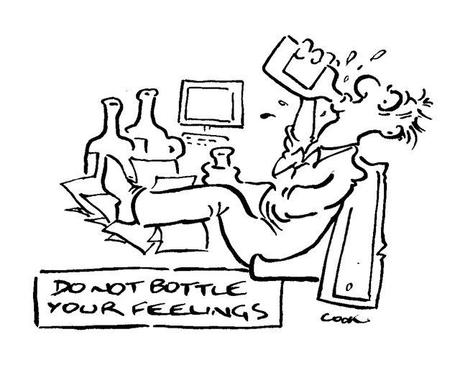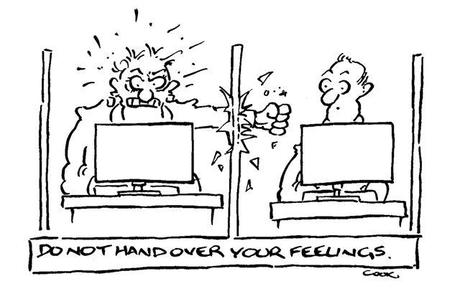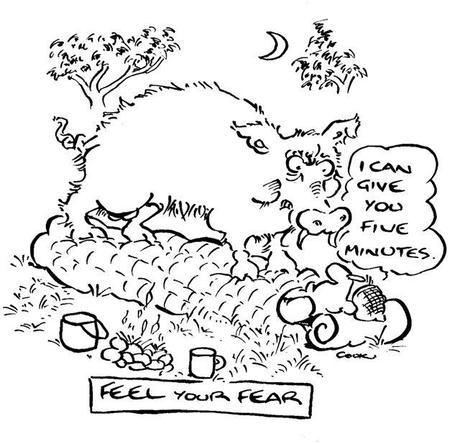 To feel better, feel worse.
To feel better, feel worse.
How hard is it to keep that sunny outlook going when you are surrounded by negative people?
For some reason, we feel we should be above this, that we can maintain our personal dignity despite the environment conspiring to press all our buttons.
Can we actually escape it?
I wonder. Many people learn to not react. That gets you part of the way. It also avoids escalation. In the words of my daughter, a closed mouth gathers no foot.
Not responding, however, doesn’t always neutralize negative feelings. They just hang around below the surface taking the edge off your performance.
There’s also the notion of “handing it over.”
This is an excellent practice for the spiritually advanced. But for people in my less enlightened category, it’s sometimes only a superficial fix. For a start, nothing has actually been processed. We have not experienced the feeling in full. We have simply packaged it for sending and sent it somewhere.
A quick handover can be closer to denial than learning, and certainly a long way from acceptance and closure. I’ve 
So what can we do?
Here’s what works for me some of the time. It’s not my idea. I’d like to say I got it from a guru I stumbled on when walking the Himalayas but the fact is I can’t remember who it was. There was no white light and it’s pretty straightforward.
Feeling angry about someone or something? Try sitting there and feeling really, really angry with that person or thing, full-bore, non-stop for twenty minutes. Do the opposite of denying it. Get right into it.
Ditto if feeling fear. Try feeling as scared as possible for long as possible. I’ve never been able to go the full twenty. The best I can do is about ten minutes.
What happens then?
The intensity of the feeling gradually abates. I’m not quite so angry or fearful. Sometimes there is an inkling of generosity toward a person who has made me angry. Occasionally I catch a glimpse of a different perspective; maybe even a solution.
It’s at that point that I can “hand it over”. There’s some closure because I haven’t denied the emotions, I’ve actually processed them.

It can also be hard to admit that you’re angry. Or scared, especially if you’re a bloke. But then again, you don’t have to tell anyone. It probably helps, but it’s not essential.
I’ve made another interesting observation too: the more I do this, the less my emotions get triggered.
There are lots of suggestions on how to handle negative reactions. This is just one that works for me. It may work for you. The idea is simple. Instead of dismissing emotions, try feeling them.


